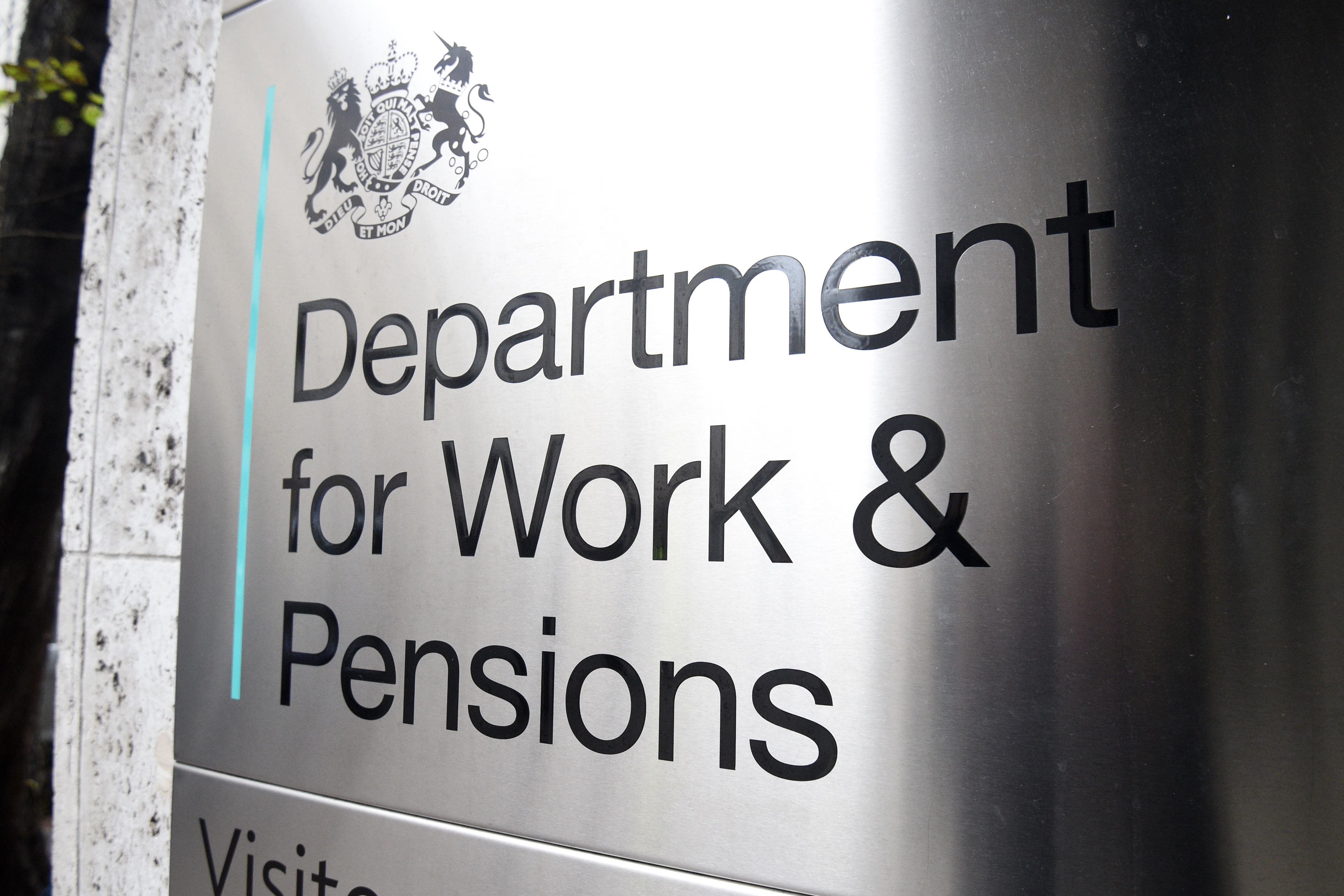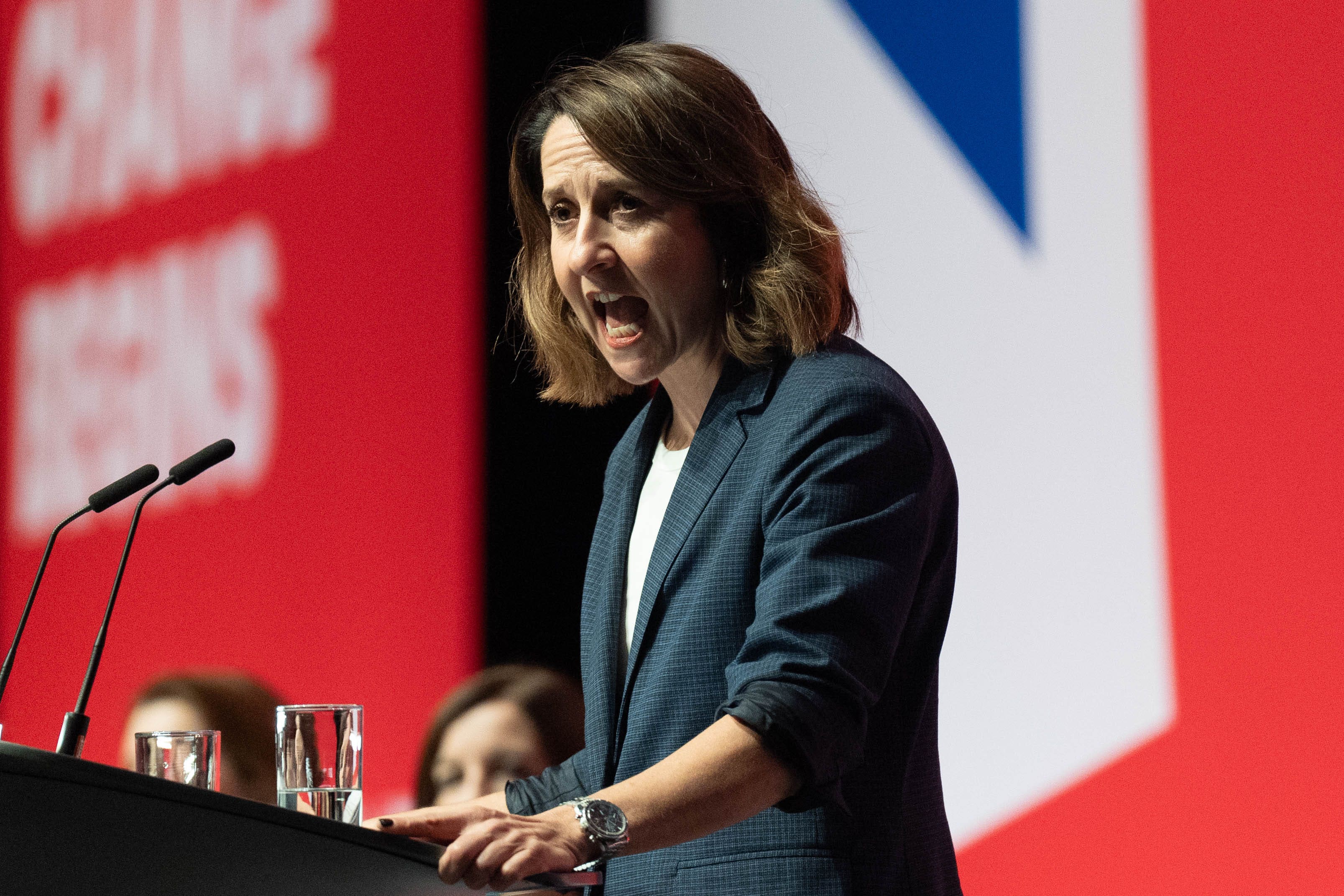How DWP rules for disability benefit assessment could change as Reeves’ Budget approaches
Changes could take effect from next April as Treasury reportedly looks to save £3bn

Your support helps us to tell the story
From reproductive rights to climate change to Big Tech, The Independent is on the ground when the story is developing. Whether it's investigating the financials of Elon Musk's pro-Trump PAC or producing our latest documentary, 'The A Word', which shines a light on the American women fighting for reproductive rights, we know how important it is to parse out the facts from the messaging.
At such a critical moment in US history, we need reporters on the ground. Your donation allows us to keep sending journalists to speak to both sides of the story.
The Independent is trusted by Americans across the entire political spectrum. And unlike many other quality news outlets, we choose not to lock Americans out of our reporting and analysis with paywalls. We believe quality journalism should be available to everyone, paid for by those who can afford it.
Your support makes all the difference.Changes to disability benefit assessments are set to come into force soon as Rachel Reeves reportedly pushes ahead with plans to shave £3 billion from the welfare bill ahead of Labour’s upcoming Budget.
The previous Conservative government announced in 2023 that the Work Capability Assessment (WCA) would be reformed, with the qualifying criteria being significantly overhauled. According to research from the Department of Work and Pensions (DWP), the changes will mean around 450,000 fewer people will be considered to have limited capability for work.
Labour recommitted to the plans in its election manifesto, saying the WCA is “not working” and needs to be “reformed or replaced”. Previous estimates from the Office for Budget Responsibility show the measure would save £3 billion over the next four years, figures understood to already be factored into Treasury spending assumptions.

Under the Conservative plans, the WCA reforms would change the descriptors used to assess eligibility for certain benefits, making it harder for people to qualify. These are:
- Removing the “Mobilising” activity used to assess limited capability for work and work-related activity (LCWRA)
- Realigning the LCWRA Substantial Risk rules with the original policy intent of only applying in exceptional circumstances
- Reducing points for some of the descriptors under the Getting About activity used to assess limited capability for work (LCW)
It is not yet clear if the new government’s plans for WCA will take a different form, with the DWP saying they still plan to release more details.
However, the government should not make these changes “in haste”, warned experts from living standards think-tank the Resolution Foundation in its ‘Cutbacks Ahead’ report.
They said the reform will mean around 450,000 people whose health prevents them from working will see a benefit cut of up to £4,900 a year.
The report authors say the issue is “similar in scale” to Labour’s controversial decision to cut back winter fuel payments for millions of pensioners from this year.
“These changes should not be made in haste,” the Resolution Foundation said. “They will degrade living standards for low-income families, with 47 per cent of families who receive these incapacity benefits coming from the bottom 30 per cent of the income distribution.”
Instead, the authors argued, the changes should be delayed or cancelled to allow “sufficient time” to ensure effective implementation.
The think-tank – thought to be influential with ministers – also takes issue with the previous government’s logic that the changes would encourage more people into work, arguing “it is in reality a straightforward cost-saving measure”.
Its research shows only around 3 per cent of those affected (around 15,400 people) would move into work, with the rest still unable to work while also nearly £5,000 worse off. It is forecast the measure will raise about £1.3bn a year for the Treasury by 2028/29.
Labour’s DWP secretary Liz Kendall said she wants to tackle long-term sickness, with a record 2.8 million people out of work for this reason.
In September, she met with a newly founded expert panel which will advise the government on how to meet its ambitious 80 per cent employment target, which is currently at 75 per cent.
The minister acknowledged an improvement in healthcare is also needed to meet Labour’s ambition, as experts warn against stigmatising sickness and leaving vulnerable people without support.
The Resolution Foundation report added the “real public policy failure here is the underlying deterioration in the nation’s health”, arguing the cost burden for supporting people with health conditions will just be placed onto other parts of local or central government if changes are not thought through.
David Southgate, policy manager at disability equality charity Scope, said:“Disabled people still don’t know what is going to happen to the Work Capability Assessment. This is leaving thousands feeling anxious and confused.
“The government needs to scrap its predecessor’s plans and put forward its own positive case for change.
“Change is desperately needed, as the Work Capability Assessment is degrading, stressful and built on mistrust.
“The government needs to work with disabled people to fix our broken welfare system, rather than making it more punitive.”
Over the next six years, public spending on working-age disability and incapacity benefits is forecast to grow from £43 billion in 2022/23 to £63 billion in 2028/29 – an increase of almost 50 per cent. The majority of this will be paid for disability benefits such as Personal Independence Payments (PIP). This benefit is assessed through a different process to the WCA.
A DWP spokesperson said: “Spiralling inactivity and millions of people denied the right support is holding the country back and stifling the economy.
“We believe the Work Capability Assessment is not working and needs to be reformed or replaced, alongside a proper plan to support disabled people.
“We will deliver the change the country needs; supporting those who can work, into work, and delivering growth in every part of the country.”
Join our commenting forum
Join thought-provoking conversations, follow other Independent readers and see their replies
Comments